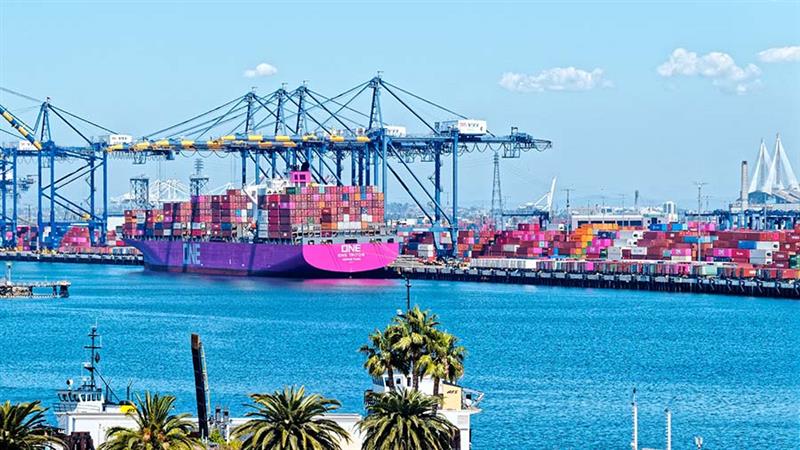Dalian-based Employers to Face Higher Social Insurance Costs. Other Cities to Follow?
Aug. 29 – On August 25, the northeast Chinese city of Dalian released a new policy set to come into effect from September 1, 2011, stating that the calculation for the employer contribution of social insurance costs on behalf of their employees will change. The effect of this change is going to have a considerable negative effect on some companies based in the city. The changes can be summarized in two portions:
- The base on which monthly contributions are calculated will be changed. Previously (as is the case in most cities across China), the average monthly salary of the employee during the previous year would be used as the social insurance contribution base for both the employer and the employee. This amount would be multiplied by 31.4 percent (the total social insurance contribution percentage in central Dalian) to derive the amount of contribution required from both employer and employee. However, starting from September 1, the employer portion of the social insurance payment will be based on the total previous month’s salary received by the employee. On the assumption that most employees would have received increases in salary over the previous year, this is going to effectively increase the required contributions of the employer. The calculation for the contribution made by the employee will not change.
- The ceiling for the base figure, which until now (as is the case in most cities across the country) has been 300 percent of the average social salary in Dalian (RMB11,154), has been scrapped. Therefore, the previous maximum contribution that an employer would be required to make for an employee (RMB3,502.36) is no longer applicable. Companies that pay their senior staff more than this amount will be obligated to pay social insurance premiums at a rate of 31.4 percent of their total gross salary (based on their income from the previous month).
At the moment, we understand that the new regulation is only applicable to the four districts of central Dalian. So far we have not heard that the Dalian Development Zone will implement this policy.
The overall effect on companies in Dalian will depend on how much salary increase they provided to their staff over the past year, and how many “high-earners” (employees earning over RMB11,154 per month) they have.
The negative effect will be compounded for a lot of companies in the Dalian High-Tech Zone. Until July, many of these companies were enjoying a local policy under which the social insurance contribution made by the employer on behalf of all employees was capped at the average social salary in Dalian (RMB3,718). Therefore, their total expenditure for social insurance on behalf of each of their employees was only RMB1,167. This policy was suddenly terminated in July, and the total cost burdened by such employers rose considerably, especially for those BPO and ITO companies employing a lot of skilled, multi-lingual employees. The implementation of this new calculation for social insurance will be an even bigger blow to such companies, for which labor is their single largest expenditure. As BPO companies, they already have contracts in place with their clients and cannot easily change the terms of such contracts. We can assume that a lot of BPOs will find their profit margins severely curtailed.
The signs are also ominous for companies employing foreigners (as many of the above BPO/ITO operations do). According to the new Social Insurance Law, it is anticipated that foreigners will also need to participate in the Chinese social insurance system in the near future. It has previously been assumed that the additional cost to employers would at least be limited by the cap on contribution base of 300 percent of local average salary, meaning a maximum monthly burden to the employer of RMB3,502.36. However, this Dalian regulation implies that companies would have to make contributions on behalf of foreigners based on their entire salary.
Let’s take the example of a foreign employee earning RMB50,000 per month, it can be seen that for such an employee the monthly social insurance contribution required to be paid by the company under the current regulation would go from zero (currently) to RMB15,700 per month. Stated simply, the cost of employing every single foreigner would increase by 31.4 percent of the foreign employee’s salary.
It is assumed that the reason for this policy change is related to the new Social Insurance Law. If this policy is indicative of a trend that will be rolled out across the whole of the country, it will undoubtedly be a negative development for all companies doing business in China. If it is restricted to Dalian, then it is bad news only for corporations based in Dalian, and particularly those employing a large number of skilled employees.
Dalian has suffered a number of setbacks recently, including the explosion last year of oil storage containers leading to an oil leak into the sea and the near-leak of poisonous chemicals from a chemical plant a few weeks back. A further petrochemical explosion has been reported today (August 29). The latest news will come as yet another unpleasant surprise for companies based in the city.
Dezan Shira & Associates is a boutique professional services firm providing foreign direct investment business advisory, tax, accounting, payroll and due diligence services for multinational clients in China, Hong Kong, Vietnam and India. For further information and clarification on Dalian’s new policy or on China’s new Social Insurance Law, please email payroll@dezshira.com.
Related Reading
 Dalian City Guide (Complimentary Download)
Dalian City Guide (Complimentary Download)
Asia Briefing’s City Guide on Dalian is designed for the investor seeking a general overview on one of China’s most important port cities, which handles a large portion of trade with Japan, Korea and Taiwan due to its strategic location. The city is also a key financial and logistics hub serving the Northeast China region.
Effect of China’s New Social Insurance Law on Foreign Employees/Employers
China Expats, Employers to Get Hit With Social Welfare Costs
New Social Insurance Law Aims to Improve Social Welfare System in China
The RMB Position and the Mysteries of the China Unemployment Fund
- Previous Article The China Alternative – Cambodia
- Next Article Calculation of Maternity Benefits to Change in Dalian



























